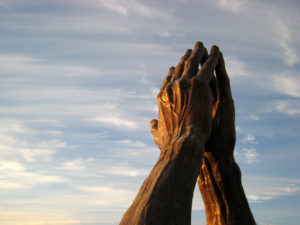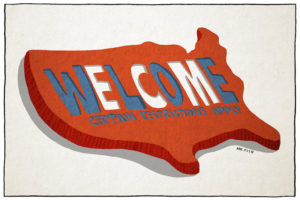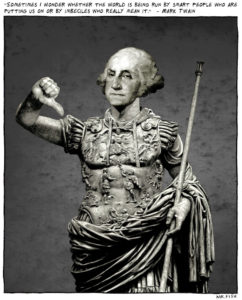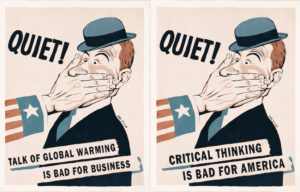American Artists in Paris
"Not all pioneers," writes David McCullough, "went west" Thus he establishes his theme, the intellectual frontier mentality that drove countless Americans to brave the rigors of a sea voyage and an alien culture to imbibe the Old World charm and history of Paris".
This review of “The Greater Journey: Americans in Paris” is from a syndication service of The Washington Post.
“Not all pioneers,” writes David McCullough, “went west.” Thus he establishes his theme, the intellectual frontier mentality that drove countless Americans to brave the rigors of a sea voyage and an alien culture to imbibe the Old World charm and history of Paris. There they could write, paint, sculpt, compose, study medicine or indulge the other creative yearnings that propelled the multitude crowding this panoramic book.
McCullough begins his story in the 1830s, sketching the characters as they prepare to leave for their journeys — novelist James Fenimore Cooper, portrait painter Samuel F. B. Morse, poet and medical student Oliver Wendell Holmes, women’s education advocate Emma Willard and others. At the time, sea travel is fraught with risk. Only a determined band of adventurers (mostly young, mostly male) has the means and ambition to face it. Later, as the voyage becomes safer and less expensive, the cast enlarges. More women join the pilgrimage, including tireless medical student Elizabeth Blackwell, who later founded the New York Infirmary and College for Women, and art student Mary Cassatt.
A third of the way through the 19th century, Paris’ population of 800,000 was four times the size of New York City’s. A historic center of art, literature and medicine, it could lay claim to being the most influential city in Europe. McCullough provides glimpses of many lives, from Cooper, America’s first writer to achieve huge popular success, to future senator and abolitionist Charles Sumner. Crusading novelist Harriet Beecher Stowe liked Paris because it seemed less utilitarian and Protestant than her homeland. “With all New England’s earnestness and practical efficiency,” she complained, “there is a long withering of the soul’s more ethereal part — a crushing out of the beautiful — which is horrible.”
For each American visitor to Paris, the recurring theme upon arrival is surprise at how much better everyday life seems there. “A dinner here does not oppress one,” marveled Cooper. “The wine neither intoxicates nor heats, and the frame of mind and body, in which one is left, is precisely that best suited to intellectual and social pleasures.”
One of the many interesting characters is abolitionist and fugitive slave William Wells Brown. He faced death if he denounced slavery in his native Kentucky, but in Paris he was among 800 delegates to an international peace conference with Victor Hugo as its figurehead. At Hugo’s request, Brown delivered a widely quoted speech about the need to “break … in pieces every yoke of bondage.” He was feted at a reception hosted by none other than Alexis de Tocqueville, the French foreign minister.
“At home [Brown] could have been present at such a reception only as a servant,” McCullough writes. “Curious to know more about him, Madame de Tocqueville asked him to sit beside her on the sofa. The only disapproving look he saw among the many watching was from the American consul, Robert Walsh.”
|
To see long excerpts from “The Greater Journey” at Google Books, click here. |
McCullough’s best scenes unfold in an extensive, detailed section on the surprising (and apparently largely forgotten) career of U.S. ambassador Elihu Washburne. He became a witness to both the German siege of Paris in 1870 and the atrocities of the Paris Commune in the spring of 1871. One of Washburne’s onerous duties at the American Legation was to arrange safe passage for the 30,000 Germans evicted from Paris during the Franco-Prussian war. “There were women in various stages of pregnancy,” McCullough writes. “One day a child was born on a bench outside near the door” of the legation. McCullough’s plain-speaking tone is at its best in such scenes, which easily might have been overplayed.
By the time he shows us the triumphant Exposition Universelle in 1889, we share McCullough’s enthusiasm for the city and his affection for the many Americans who improved their lives, their talent and their nation by drinking at the fountain that was Paris.
Michael Sims’ new book is “The Story of Charlotte’s Web: E. B. White’s Eccentric Life in Nature and the Birth of an American Classic.”
(c) 2011, Washington Post Book World Service/Washington Post Writers Group
Your support matters…Independent journalism is under threat and overshadowed by heavily funded mainstream media.
You can help level the playing field. Become a member.
Your tax-deductible contribution keeps us digging beneath the headlines to give you thought-provoking, investigative reporting and analysis that unearths what's really happening- without compromise.
Give today to support our courageous, independent journalists.






You need to be a supporter to comment.
There are currently no responses to this article.
Be the first to respond.